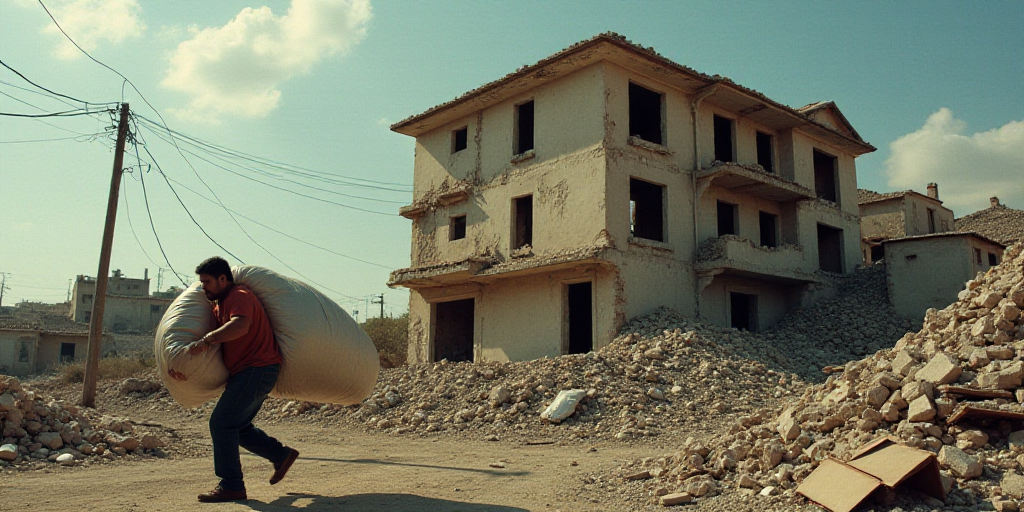Background on Key Figures and Context
The recent surge in violence in Colombia has escalated to its worst point in a decade, prompting the nation’s Defense Minister, Pedro Sánchez, to take decisive action. Sánchez is a crucial figure in Colombia’s government, responsible for overseeing national defense and security. His role has become increasingly significant as the country grapples with heightened violence and the resurgence of armed groups.
Who is Pedro Sánchez?
Pedro Sánchez is the Minister of Defense in Colombia, appointed by President Gustavo Petro. Sánchez’s responsibilities include managing the country’s military forces and ensuring national security. His recent actions reflect his commitment to addressing the escalating violence and terrorism in Colombia.
Why is this relevant?
Colombia has been dealing with a long-standing internal conflict, marked by the presence of various armed groups such as guerrillas, paramilitaries, and drug cartels. The 2016 peace agreement with the FARC left a power vacuum, which these groups have exploited for illicit activities like drug trafficking, extortion, and illegal mining. The recent spike in violence has raised concerns about the effectiveness of the government’s strategies to maintain peace and security.
Intelligence Operation Announced by Minister Sánchez
In response to the worsening violence, Minister Sánchez announced “Operación Sultana,” an intelligence-driven initiative aimed at curbing the activities of armed groups responsible for the recent attacks.
Details of Operation Sultana
Operation Sultana will reinforce an elite unit of 700 police officers in the southwestern region, tasked with locating and capturing high-value targets. The operation will leverage advanced technology and intelligence capabilities to combat the growing threat of terrorism and organized crime.
Recent Attacks and their Impact
The violence intensified with two separate incidents. In Cali, a truck bomb explosion near a military aviation school resulted in six civilian deaths and over 60 injuries. Meanwhile, in Antioquia, guerrillas killed 13 policemen by downing a helicopter with a drone and rifles during a coca eradication mission.
Attribution of Attacks
Authorities have linked these attacks to two factions of the dissident FARC group, who rejected the 2016 peace agreement. These groups have been blamed for numerous recent attacks, including the assassination of senator and presidential hopeful Miguel Uribe Turbay, evoking memories of Colombia’s violent political past.
Government Response and Criticism
President Gustavo Petro has faced mounting criticism for his handling of the escalating violence. Critics argue that his strategy of prioritizing dialogue with armed groups over a direct military confrontation has proven ineffective. The mayor of Cali acknowledged a “failure in intelligence” that needs correction.
Arrests and Suspects
Authorities have detained two individuals in connection with the Cali bombing, including one who was apprehended by local residents at the scene. Known by the alias “Sebastián,” this suspect is linked to the EMC, a significant dissident faction under Iván Mordisco’s command.
Pre-election Unrest
The 2016 peace agreement with the FARC brought relative calm to Colombia after decades of armed conflict, leaving over a million dead. However, the power vacuum created by the agreement has been exploited by various armed groups engaging in illicit activities.
Election Implications
Experts like Laura Bonilla, subdirector of the Paz y Reconciliación foundation, suggest that recent attacks aim to destabilize the government and create an atmosphere of unease ahead of the 2026 elections. These groups seek to undermine Petro’s administration and influence the upcoming presidential race.
Key Questions and Answers
- Who is responsible for the recent attacks in Colombia? Authorities have linked the attacks to two factions of dissident FARC groups who rejected the 2016 peace agreement.
- What is Operation Sultana? It’s an intelligence-driven initiative launched by Minister Pedro Sánchez to combat armed groups responsible for the violence, reinforcing an elite police unit with advanced technology and intelligence capabilities.
- Why is there growing criticism of President Gustavo Petro’s handling of the violence? Critics argue that Petro’s strategy of prioritizing dialogue with armed groups over direct military confrontation has proven ineffective in addressing the escalating violence.
- What are the implications of recent attacks ahead of the 2026 elections? Experts suggest that armed groups aim to destabilize the government and create an atmosphere of unease to influence the upcoming presidential race.






